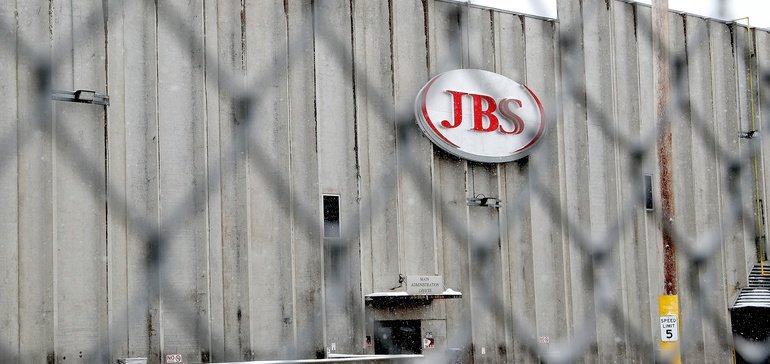JBS enters cell-based meat with BioTech Foods acquisition and $100M investment

Dive Brief:
- JBS is entering the cultivated meat space through the acquisition of Spain’s BioTech Foods and a $100 million investment in facilities. The global meat giant’s funds will build both a new production plant in Spain for BioTech Foods and a cultivated meat research and development center in its home country of Brazil.
- The Brazilian R&D center is slated to open next year. It will be led by two of the country’s top specialists in bioengineering, and in a second phase, will feature a 10,000-square-meter (32,808-square-foot) plant. It will employ about 25 researchers and work to develop new technologies for the industry.
- Many multinational food companies have partnered with cell-based meat companies — including Nestlé, Nomad Foods and Mitsubishi Corporation — but this is the first acquisition by Big Food in the space.
Dive Insight:
As the cultivated meat space continues to grow and develop, it makes sense that more traditional meat companies would want to get involved. And JBS, the world’s largest meat company, is leading the way.
“This acquisition strengthens our strategy of innovation, from how we develop new products to how we commercialize them, to address the growing global demand for food,” Gilberto Tomazoni, global JBS CEO, said in a statement. “Combining technological know-how with our production capacity, we will be in a position to accelerate the development of the cultivated protein market.”
JBS has a huge reach, with production units and offices on nearly all continents and products in 190 countries worldwide. The company has gotten deeply involved in plant-based meat, starting the Planterra division in the United States and the Incrível line in Brazil. JBS also acquired Vivera, Europe’s third largest plant-based food producer, in April. Cell-based meat is the next frontier for the company to tackle.
BioTech Foods, based in San Sebastián, Spain, was founded in 2017. The company, which is working on a cell-based pork product called Ethicameat, is the lead company in a European Union project called Meat4All. BioTech Foods received part of a 2.7 million euro (about $3 million) government grant for this project, which has the aim of scaling and improving cell-based meat production in Europe to work toward eventual commercialization. The company also is leading a 5.2 million euro (about $6 million) project funded by the Spanish government researching cell-based sustainable products with health benefits, including cancer prevention. As long as the sale is approved by authorities, JBS will have a majority stake in BioTech Foods.
BioTech Foods currently plans to reach commercial production of its products in mid-2024, according to the release from JBS. This production milestone will be helped by the new pilot plant funded by JBS, which will cost $41 million. JBS said it will have access to BioTech’s technology and protein production capabilities, while the meat giant will provide the industrial processing capacity, marketing structure and sales channels to bring products to market.
JBS’s home country of Brazil is a center of technology, research and food production for South America. However, there are currently no large cell-based meat startups in the country, though Brazil’s BRF signed a memorandum of understanding with Israeli cell-based maker Aleph Farms in March to eventually bring Aleph’s products to Brazilian consumers.
A large R&D center will help not only establish the industry in the South American nation, but it can also make it a hub for cell-based product development. After all, Brazil has one of the world’s highest per capita rates of meat consumption. There is a strong appetite for meat products in general, and cell-based options are expected to become a large portion of what the world eats in the not-so-distant future. A recent report from strategy and management consulting firm Kearney predicted that by 2040, 35% of all meat consumed worldwide will be cell-based.
Source: fooddive.com

